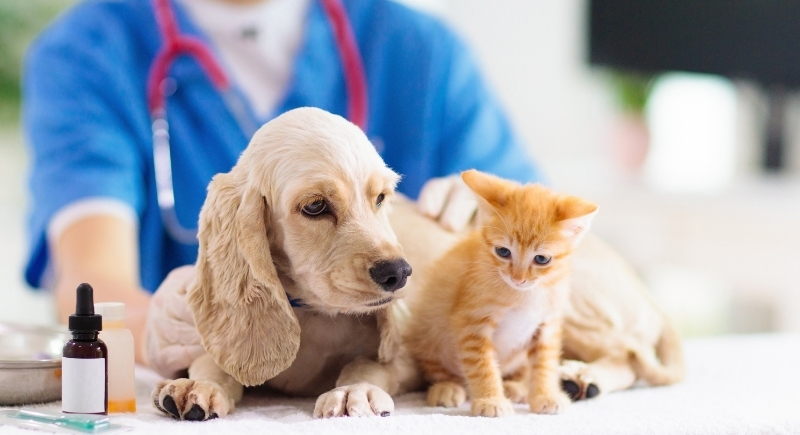Vets Are Warning That Rising Costs Are Leading to an Increase in Euthanasia
In the UK, being a pet owner is becoming harder to manage. Rising vet bills mean even routine care can feel out of reach, and families who want to do right by their animals are left making painful calculations about what they can actually afford. A basic consultation now averages about £58 ($73), and more complex treatments can easily reach into the thousands.
That strain shows up in different ways. Some delay or skip appointments, hoping problems will sort themselves out. Others give up pets they love because they can’t carry the expense any longer. And sometimes, the hardest choice is letting an animal go when treatment might have been possible.
Rising Costs Behind the Bills

Image via Getty Images/gopixa
There isn’t just one reason why taking your dog or cat to the vet feels more expensive each year. Vets point to rising everyday costs like rent, energy bills, and medical supplies. On top of that, treatments have become more advanced. Clinics now offer cancer care, neurology, and even AI-assisted diagnostics. While these developments save lives, they also come with higher price tags. As Elvira Meucci-Lyons from the charity Mayhew explained, running a community clinic shows firsthand how much energy, water, and consumables drive up expenses.
Another layer comes from changes in ownership. Large corporate groups now control the majority of UK practices. Many vets and nurses told reporters that since these buyouts, prices have risen, and financial targets are being pushed on staff. The Competition and Markets Authority (CMA) is investigating whether this lack of competition is part of the problem and says it needs more time to sort through the thousands of responses it has received.
Stories of Struggle and Sacrifice
The numbers only make sense when you see the people behind them. Caroline spent more than £4,500 ($5,670) trying to save her 19-year-old cat, Ozzie, who had a brain tumor. When he died, she couldn’t afford cremation and buried him in her garden instead. The experience left her so shaken that she says she won’t take on another pet.
Avril, who owns a 12-year-old Cavachon named Dougie, scaled back vet visits because of cost. Dougie has a heart condition, and when he later went deaf, Avril feared she had missed signs that his health was declining.
Animal charities are being stretched as well. Blue Cross reported a 264% increase in applications to its emergency care fund in just one year, rising from 1,319 to 4,807. The same charity distributed three million meals through pet food banks.
A PDSA survey found that 26% of pet owners had gone into debt for treatment. Others admitted they were skipping meals, cutting utility bills, or reducing donations to ensure their animals were fed. Dogs Trust said many owners are also missing routine care, such as vaccinations and worming, and, in some cases, even holding off on urgent treatment because the bills are too steep.
When Bills Decide Life or Death

Image via Getty Images/FamVeld
Vets on the ground are sounding the alarm. Locum vet Dr. Callum Ladell says he’s seen pets come in after months without care because owners feared the bill. By that point, the cases often end in euthanasia. He shared a striking example: he stitched up a cat’s wound privately for £93 ($117), but when the same cat was treated at a larger clinic, the bill topped £1,074 ($1,350). While the clinic defended the difference by saying the procedures weren’t comparable, the outcome highlights the affordability gap.
Charities like Blue Cross warn that more animals are being relinquished or put down, and chief vet Paul Manktelow says, “these are not choices people make lightly.” For vets, carrying out euthanasia for financial reasons is taking a toll on their mental health, too.
Searching for a Way Forward
The Competition and Markets Authority has suggested remedies like capping the cost of medicines and requiring clearer pricing, but the British Veterinary Association has pushed back. The group warns that such measures could shrink consumer choice or even drive some fees higher. At the same time, the BVA agrees that the industry’s outdated laws need an overhaul so that veterinary businesses—not just individual vets—are held responsible for how care is priced and delivered.
For now, there’s no quick fix. Pet owners, charities, and vets are still caught between what animals need and what families can afford. Too often, the hardest part of losing a pet isn’t the medical outcome, but the bill that comes with it.